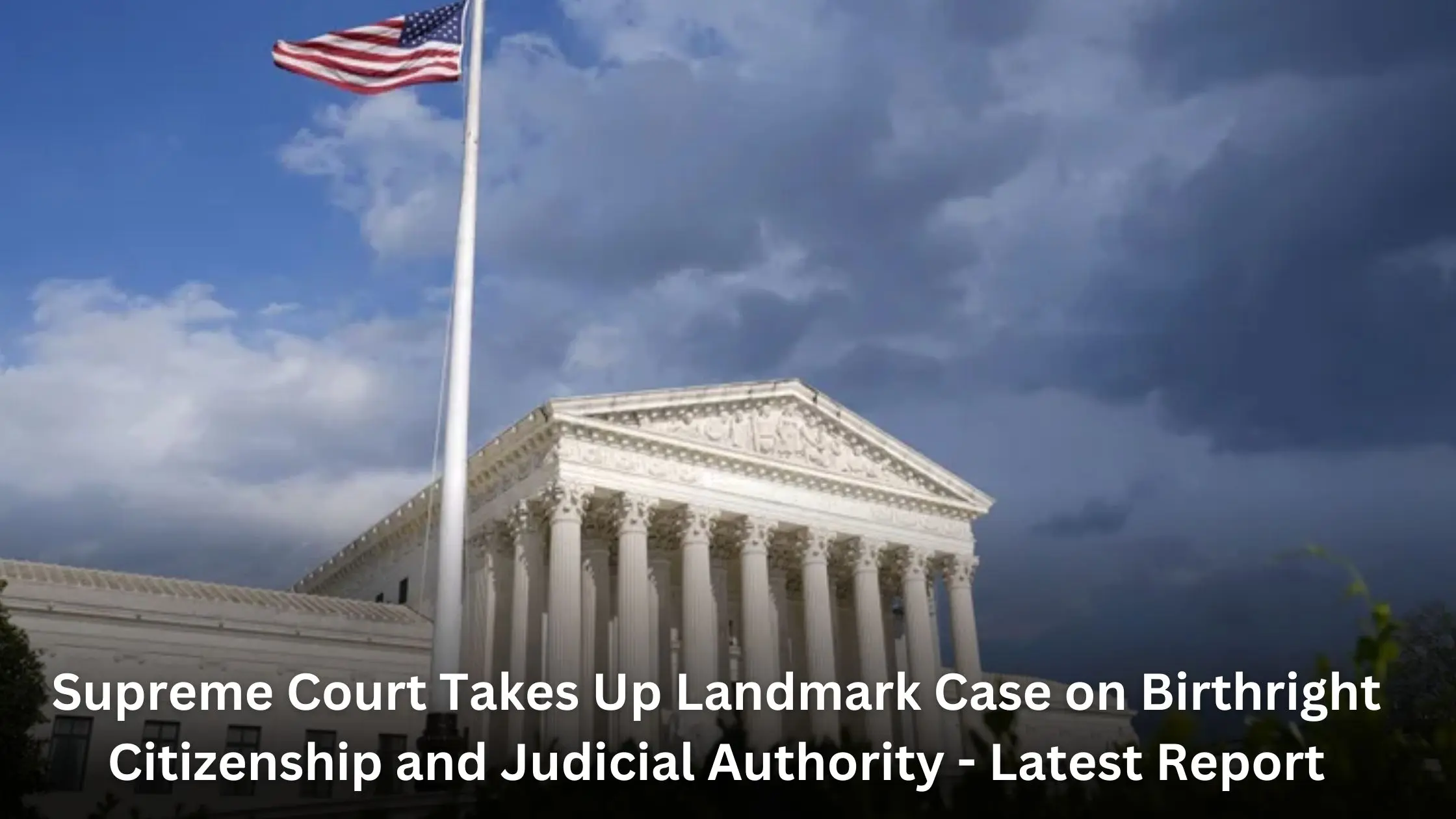Washington, D.C. — The Supreme Court is set to hear arguments today in a case that could redefine the power of federal judges and reshape the legal landscape around birthright citizenship. The case stems from an executive order by President Trump that sought to end the practice of granting citizenship to all children born in the United States.
The executive order was immediately blocked by federal judges who deemed it unconstitutional, citing the 14th Amendment, which guarantees citizenship to all individuals born or naturalized in the country.
The Debate Over Nationwide Injunctions
At the heart of the case lies the use of nationwide injunctions—powerful judicial tools that halt the enforcement of federal policies across the country. In recent years, such injunctions have been used to block multiple initiatives from the Trump administration, ranging from immigration policies to healthcare regulations.
The Supreme Court’s decision could limit the ability of individual federal judges to issue nationwide injunctions. Legal experts say this could force advocacy groups to pursue multiple lawsuits or shift strategies, potentially making it harder to challenge presidential policies.
Historical Context and Constitutional Questions
The 14th Amendment, ratified in 1868, states:
“All persons born or naturalized in the United States, and subject to the jurisdiction thereof, are citizens of the United States and of the state wherein they reside.”
This constitutional guarantee was reaffirmed in the landmark 1898 case of United States v. Wong Kim Ark, which upheld birthright citizenship even for children of non-citizen parents.
While today’s case primarily examines the scope of judicial power, the Supreme Court may indirectly weigh in on the substance of President Trump’s executive order, which challenges this long-standing interpretation.
Implications of the Case
If the court limits nationwide injunctions, future challenges to federal policies could face significant hurdles. Advocacy groups opposing the Trump administration’s policies argue that nationwide injunctions have been critical tools for swiftly protecting vulnerable populations.
Critics, however, claim such injunctions allow unelected judges to wield outsized influence, disrupting federal policy implementation and creating legal chaos.
Unusual Nature of the Case
Legal analysts note that this case is unusual for several reasons. It reached the Supreme Court at an unprecedented speed, extended the court’s typical calendar, and involves oral arguments outside the traditional docket schedule.
As the nation awaits the court’s decision, the case promises to be a pivotal moment in defining the balance of power between the executive branch and the judiciary.

